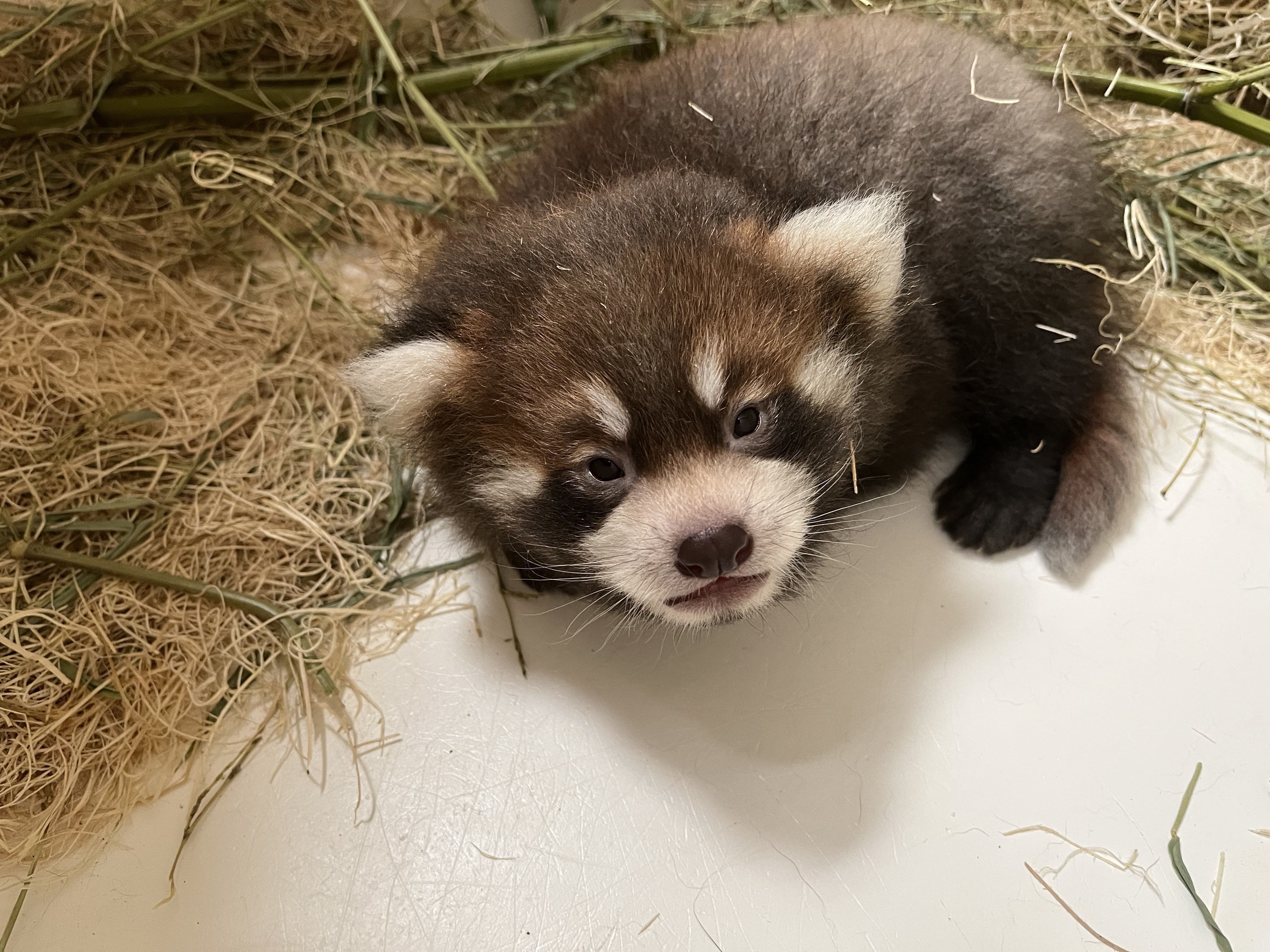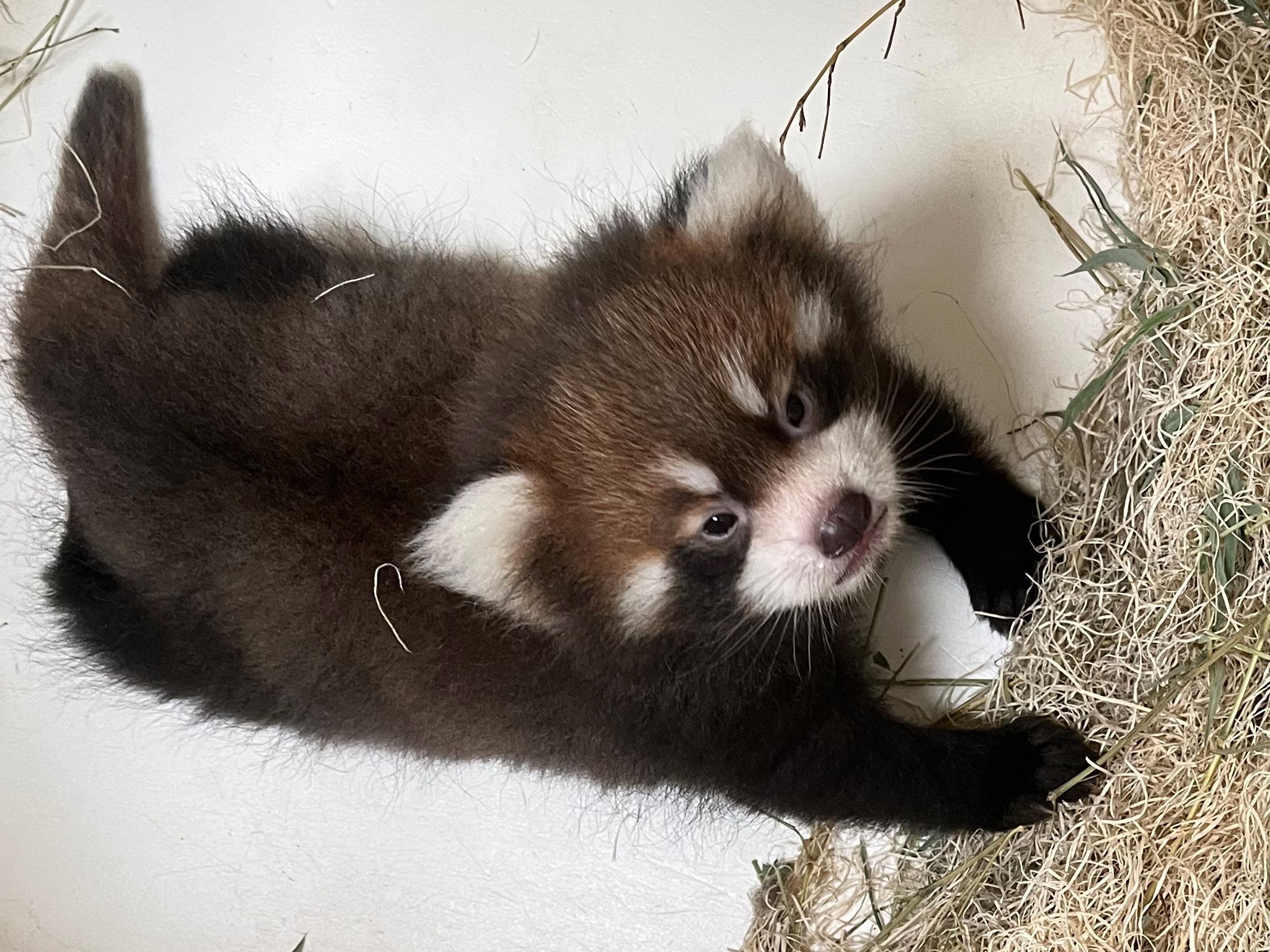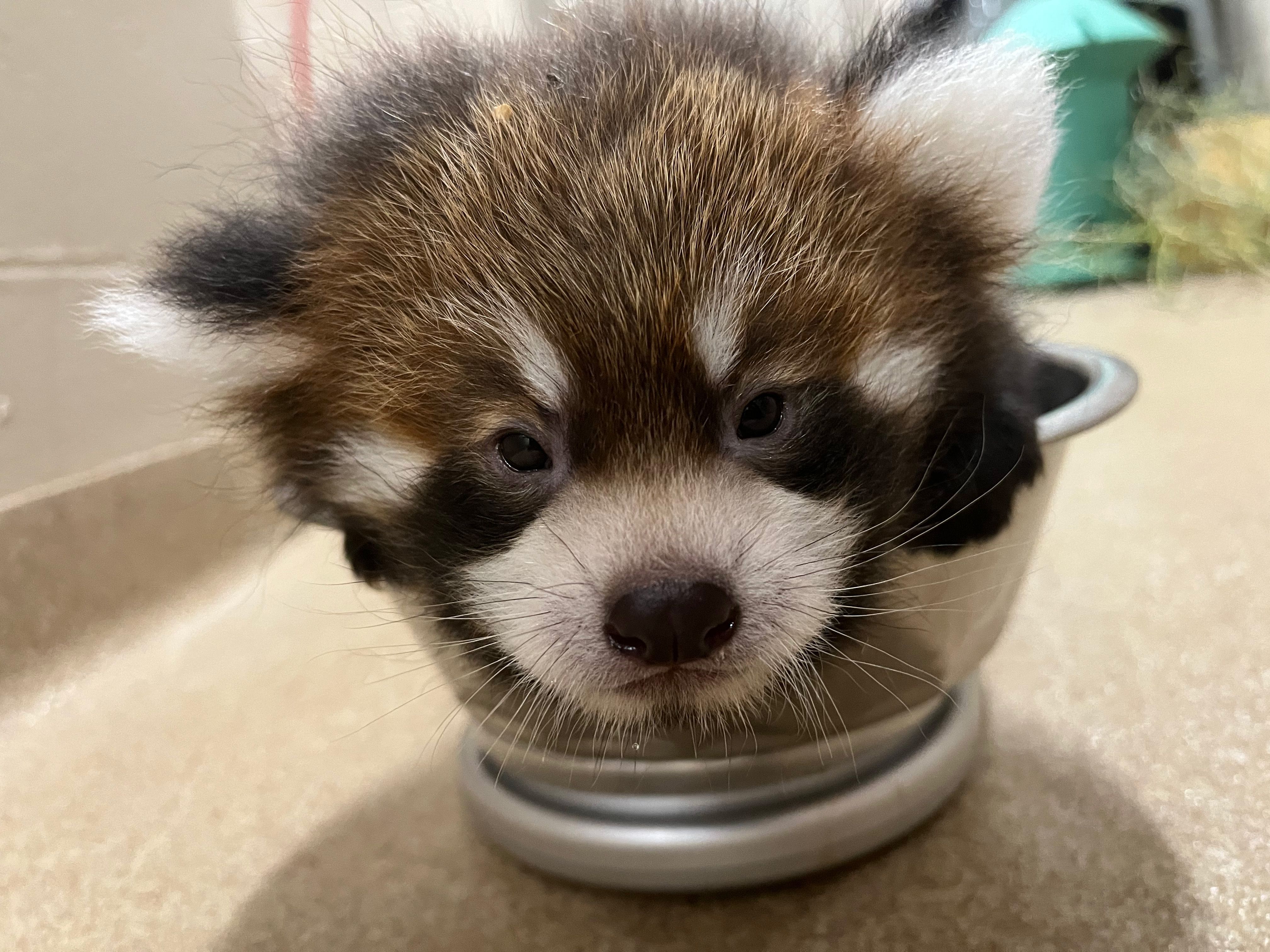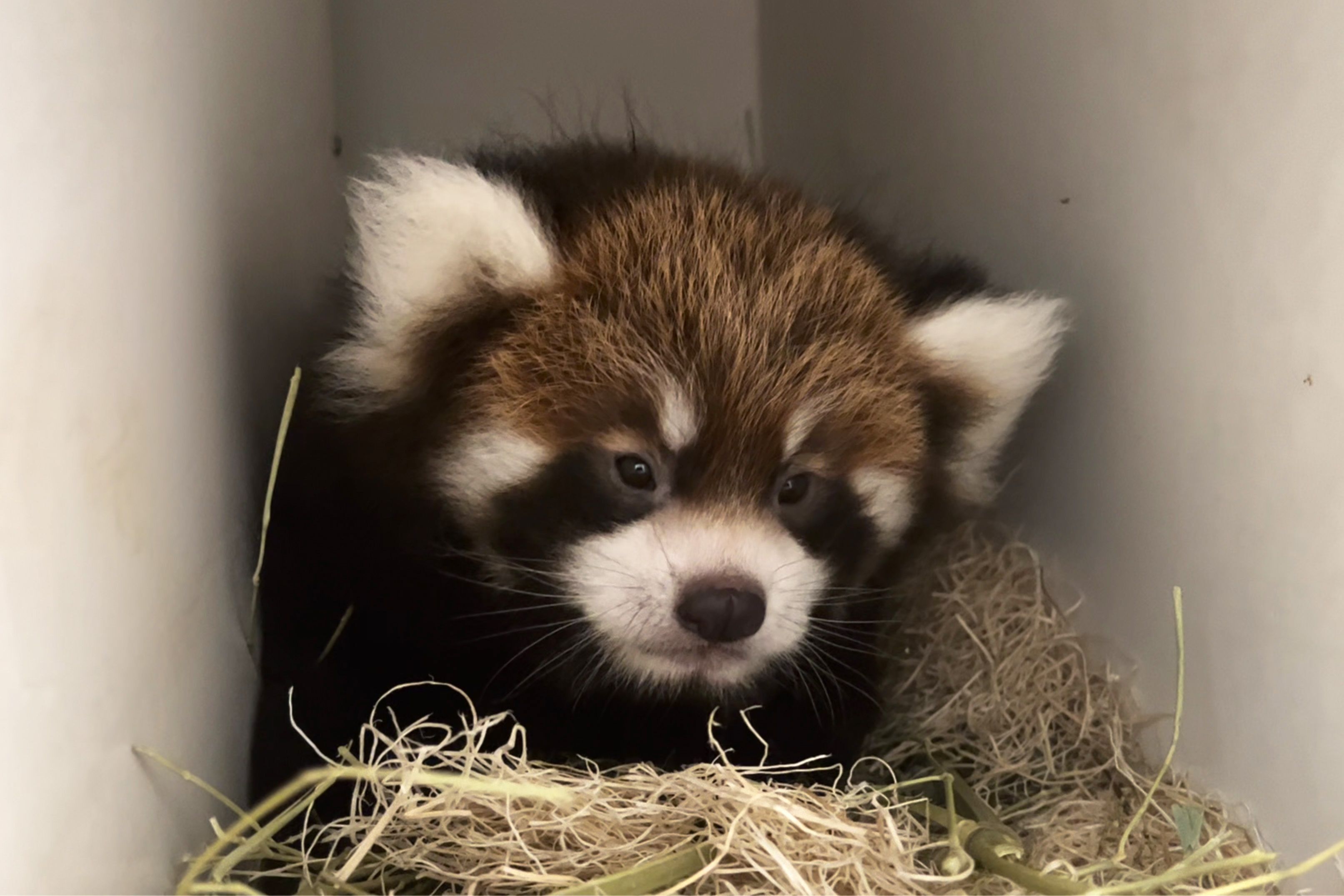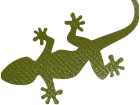Welcoming Betty the Red Panda Cub
Lincoln Children’s Zoo is excited to announce that a female red panda cub was born at the Zoo. The cub, named Betty, was born on June 4, 2022, to first-time mom, Tián, and dad, Liu. This is the first red panda cub born at the Zoo within the last eight years.
After giving birth, in the wild female red pandas will use tree hollows or rock crevices lined with plant material for nests. They like to have many options and will move their cubs throughout multiple different nests. To replicate this, Zookeepers at the Lincoln Children’s Zoo created six nest boxes behind the scenes with bamboo and wood wool inside as nesting material. Mothers will spend almost all their time in the nest box with the cub for the first few weeks after giving birth and as the cub gets older, they will spend longer periods of time away but still in close proximity.
“Red Pandas are an endangered species so this birth is incredibly important for animal conservation efforts,” said Evan Killeen, Lincoln Children’s Zoo CEO. “Tián’s maternal instincts have been spot on and our Zoo team has done a great job creating an exceptional environment for mom and cub to thrive, while also monitoring them to ensure their continued health and safety.”
Red Pandas are listed as Endangered on the International Union Conservation of Nature’s (IUCN) Red List of Threatened Species, meaning they face a very high risk of extinction in the wild.
The Lincoln Children’s Zoo is part of the Association of Zoos and Aquariums’ Species Survival Plan Program. The program develops a Breeding and Transfer Plan which identifies population goals and recommendations to manage a genetically diverse, demographically varied, and biologically sound population. The plan’s coordinators approved breeding recommendations for the Zoo’s red pandas Tián and Liu.
Mom and cub currently have access to their exhibit space, however, guests will likely not see Betty on exhibit until sometime this fall. Betty will continue to spend almost all her time in her nest boxes as her motor skills continue to develop and as she learns to climb and move on her own.

